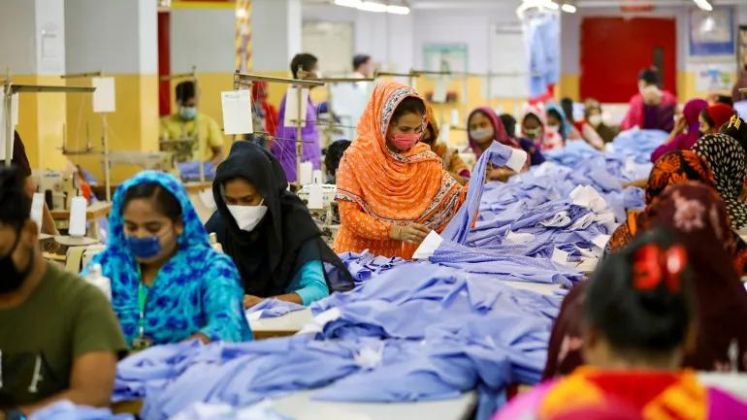
Industry insiders have reportedly identified a variety of reasons why Bangladesh is trailing behind other countries in capturing US garment work orders that are being transferred from China, including inefficiencies, lengthy lead times, and the current energy crisis.
Data from the US Commerce Department’s Office of Textiles and Apparel (OTEXA) revealed a similar pattern, indicating that Vietnam had overtaken China in terms of clothing shipments to the US in the first four months of 2024.
However, over the relevant time, Bangladesh saw double-digit negative growth, accounting for 14.44 per cent of the US market, and brought in US $ 2.30 billion. The value and volume of exports both reflect the nation’s decline.
Bangladesh shipped 763.35 million square metres, or 8.26 per cent fewer garments between January and April of 2024 than it did the same time the previous year (832.06 million square metres).
US import figures show Bangladesh’s key ready-made garment competitors China and Vietnam outperformed Bangladesh while exporters list several domestic issues like long lead times, inconsistent energy supplies and an overall high cost of doing business for their loss of export share in the US market.
These same factors, they say, give Vietnam an advantage in the American market.
US apparel imports from Vietnam totalled US $ 4.38 billion in the January-April period this year, marking a slight 0.31 per cent growth, according to OTEXA figures released on May 06.
In contrast, China’s apparel exports to the US saw a decline of 4.43 per cent to US $ 4.32 billion.
However, overall US apparel imports fell by 6.0 per cent to US $ 23.68 billion in the first four months of 2024, down from US $ 25.20 billion in the same period of 2023.
Talking to the local media, several exporters have opined that buyers are now expressing concern over energy security of the country, saying that labour and energy are one of the major two strengths that helped the sector grow.
According to Urmi Garments Ltd.’s managing director, Asif Ashraf, “we can’t grab the work orders of US buyers shifting from China mainly because of inefficiency, absence of aggressive marketing there, and also energy crisis.”
Since there are issues with gas and power and companies are unable to operate at full capacity, buyers are now voicing concerns about energy security, he pointed out.
In response to a question, Mohammad Hatem, executive president of the Bangladesh Knitwear Manufacturers and Exporters Association (BKMEA), stated that several issues are causing buyers to place orders with shorter lead times. China and Vietnam benefit more from this scenario because of their quicker lead times and more reliable energy supplies.






